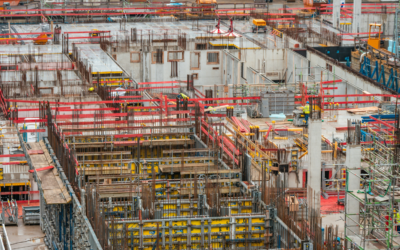Stepping into the role of a construction project manager means orchestrating the intricate dance of construction projects from start to finish. But what exactly is required to excel as a construction project manager? This article provides a no-nonsense look at the key responsibilities, from planning and coordination to execution and financial oversight. Discover the traits of leading project managers, the various pathways to enter this career, and the technologies that are transforming the landscape of construction management. Whether you’re aiming to enhance your skills or considering a career pivot, we offer a concise blueprint for success in this dynamic role.
Key Takeaways
-
Construction Project Managers are responsible for vision setting, planning, coordinating resources, and managing bidding and on-site execution, necessitating strong organizational and leadership skills.
-
Key traits of effective construction project managers include exceptional communication, strategic problem-solving, accountability, and the ability to manage project progress through various challenges.
-
Educational pathways, industry experience, and technology utilization, like construction management software, are crucial for advancing in construction project management and enhancing project efficiency and collaboration.
Decoding the Construction Project Manager’s Role

At the heart of every successful construction project is a competent and effective project manager, often known as a construction manager. Their role is a complex tapestry of responsibilities that weave together to form the overall project vision. Construction managers are responsible for setting the project’s direction, planning its execution, and coordinating the myriad resources needed to bring it to fruition.
Vision Setting and Project Planning
Among a construction project manager’s key duties are crafting a compelling vision and planning the construction project effectively. The vision acts as a guiding star, aligning the efforts of all involved, while effective planning ensures all the necessary steps are taken to materialize this vision. During the planning phase, a project manager’s critical role involves defining specific, measurable, achievable, realistic, and time-bound objectives, and supervising the resource allocation process.
Orchestrating the Bidding Symphony
Following this is the bidding process, an important phase in which the project manager secures the most apt contractor for the project. This involves:
-
Analyzing bids
-
Ensuring that contractors haven’t overlooked any items that could lead to changes or cost overruns
-
Maintaining fairness and transparency throughout the process.
Striking a delicate balance between legal considerations, project objectives, and contractor selection is required.
On-Site Leadership and Resource Coordination
At the project’s core lies on-site leadership and resource coordination. Here, the project manager steps into the role of a conductor, harmonizing the various elements of the project to ensure a smooth execution. The essential facets of this role include:
-
Clear communication
-
Strategic decision-making
-
Team building
-
Empowering team members
Traits of a Highly Effective Construction Project Manager

Although the role of a good construction project manager is well-defined, effective execution demands a distinct set of characteristics. Exceptional communication, strategic problem-solving, and a strong sense of accountability are some of the key traits of proficient construction project managers.
Mastery in Communication Skills
Effective communication forms the backbone of successful project management. An effective project manager communicates clearly and concisely, fostering a two-way communication channel that encourages feedback and collaboration. This goes a long way in ensuring that everyone is on the same page, leading to heightened productivity and efficiency.
Strategic Problem Solving and Flexibility
Projects rarely go exactly according to plan. Unexpected challenges and setbacks are inherent in the process. Here are some key skills that a project manager needs to have in order to adapt to changing circumstances and find strategic solutions to problems:
-
Flexibility
-
Problem-solving skills
-
Decision-making skills
-
Communication skills
-
Leadership skills
These skills are crucial for successfully navigating through the ups and downs of a project.
They can realign the project by reorganizing workloads, adjusting resources, and ensuring efficient project team coordination and communication.
Accountability and Progress Management
Another critical attribute of a successful project manager is accountability. They take responsibility for project progress, ensuring that milestones are met on time and within budget. Effective progress management techniques include strategic planning, monitoring progress against milestones, and prioritizing tasks to focus on high-impact activities.
Pathways to Becoming a Construction Project Manager
There exist several routes to becoming a construction project manager. Whether it’s through formal education, transitioning from other roles, or learning on the job, each path presents its own unique opportunities and challenges.
Educational Gateways
A degree in construction management or a related field can provide a solid foundation for a career in project management. This formal education route allows aspiring project managers to acquire a strong understanding of construction techniques and legal requirements, as well as develop their communication and leadership skills.
Transitioning from Other Roles
On the other hand, transitioning from other roles can be another viable pathway to becoming a construction project manager. Individuals with experience in other industries or roles can gain relevant skills and knowledge needed for project management.
For example, construction workers at a construction firm can cultivate skills such as construction industry knowledge, adaptable planning, effective communication, and expertise in construction estimating, all of which are essential for working efficiently at a construction site.
To transition into a senior project manager role, one must gain experience and expertise in project management.
Learning on the Job
Some construction project managers start in entry-level positions and work their way up, learning valuable skills and gaining experience along the way. From project coordinator to technical analyst, these entry-level positions can potentially lead to a project manager role, with each step providing invaluable on-the-job training and experience.
Integrating Technology: Construction Management Software

In today’s digital era, technology is integral to construction project management. Construction management software, for instance, can streamline project planning, scheduling, and collaboration, drastically improving efficiency and productivity.
Digital Project Scheduling Tools
Digital tools such as Gantt charts and task lists can simplify project planning and scheduling. They provide a visual representation of tasks and timelines, facilitating the planning process and improving team collaboration. In addition, they assist in:
-
Planning
-
Prioritizing
-
Monitoring task progress
-
Providing visibility into project advancement
Enhancing Collaboration with Software
Software solutions can also enhance collaboration among team members, ensuring that everyone stays informed and on the same page. From Asana to Google Workspace, these tools facilitate real-time access to project data, enabling remote monitoring and enhancing communication and coordination.
Navigating Contract Types and Project Delivery

Grasping the subtleties of contract types and project delivery methods is crucial for successful construction project management. These elements significantly influence project outcomes by directly impacting key performance indicators such as:
-
cost
-
quality
-
schedule
-
safety
Understanding Contract Essentials
A contract sets the terms and conditions of the project, outlining the responsibilities of all parties involved. From lump-sum and unit price contracts to cost-plus contracts, each type has its own advantages and disadvantages.
Understanding these nuances can help project managers select the most suitable contract type for each project.
Selecting the Right Project Delivery Method
Selecting the right project delivery method, such as design-bid-build or design-build, can have a significant impact on project outcomes. Each method has its own strengths and weaknesses, and the choice depends on the project’s distinctive attributes, objectives, financial plan, design, hazards, timetable, and the owner’s proficiency.
Managing Multiple Phases of Construction Projects
The role of a construction project manager includes the construction project manager’s responsibilities of:
-
Planning and setting up the project
-
Effectively managing multiple phases of a project, from initiation to execution
-
Monitoring progress and making necessary adjustments along the way
Kicking Off with Project Initiation
The project initiation phase lays the groundwork for the entire project. It involves defining objectives, conducting feasibility studies, and identifying potential risks.
Effectively managing this phase allows project managers to establish a strong foundation for the project’s success.
Detailed Planning Phase
Following the initiation phase is the phase of detailed planning. Here, project managers create detailed schedules, assemble project teams, and develop comprehensive project plans. By meticulously planning each step, they ensure that the project stays on track and meets its objectives.
Overseeing the Execution Phase
After planning is complete, the project transitions into the execution phase. Project managers must monitor progress, allocate resources, and manage stakeholder expectations, ensuring that everything is proceeding according to the plan.
Financial Savvy: Budgeting and Cost Control

Another key aspect of construction project management is financial management. From budgeting to cost control, project managers must have a firm grasp on the financial aspects of their projects to ensure they stay within budget and meet their objectives.
Crafting Accurate Cost Estimates
For effective budgeting, accurate cost estimates are indispensable. Creating precise cost estimates enables project managers to keep their projects within the budget. This involves:
-
Gathering data from past projects
-
Defining the scope and objectives
-
Breaking down the project into components
-
Researching current market prices
Monitoring Expenditures
Project managers can maintain control over project finances by regularly monitoring expenditures and adjusting plans as necessary. By keeping a close eye on expenditures and making necessary adjustments, they can prevent budget overruns and ensure the project stays on track.
Summary
In essence, being a construction project manager is no small feat. It requires a unique blend of skills, knowledge, and expertise. From setting the vision and planning the project to managing the execution phase and overseeing the finances, a project manager plays a crucial role in ensuring project success. By mastering these skills and utilizing the right tools, you too can navigate the complex world of construction project management with confidence.
Frequently Asked Questions
What is the role of construction project management?
Construction project management involves planning and coordinating all aspects of the construction process, including hiring contractors and working with engineers, architects, and vendors. This can be overseen by a single manager for smaller projects or multiple managers for specific aspects of larger projects.
What are the 4 types of management in construction?
The 4 types of management in construction are practice management, relationship management, safety management, and total quality management. Each of these plays a crucial role in ensuring the success of construction projects.
What are the key traits of a successful construction project manager?
Effective construction project managers possess mastery in communication, strategic problem-solving, and a keen sense of accountability. These traits are crucial for success in this role.
How can someone become a construction project manager for SouthCoast Improvement Company?
South Coast Improvement Company seeks to expand our team with dynamic, career minded construction professionals to accommodate our continuously widening pipeline. Our employees are proud to be a part of the efforts that yield 85% repeat business and a client base made up of some of the largest providers of Senior Living and Affordable Housing in the country, many of these relationships spanning over 10 years, and have expanded geographically based on local success to include 18 states up and down the East Coast from Maine to Florida, opportunities abound. Visit our Careers Page to apply or learn more!
View Our Work
Aspen Dental
Partnering with The Aspen Group on the construction of a new Aspen Dental facility that’s functional & welcoming for patients & staff alike. South Coast Improvement Company was awarded the construction of a new Aspen Dental facility in Killingly, CT. The...
Springhouse Senior Living – HumanGood
Designed to enhance comfort & functionality. South Coast Improvement company was hired by HumanGood for an interior and exterior renovation at Springhouse Senior Living. Our skilled teamtransformed the 2nd through 5th floor common areas into brighter, more...






